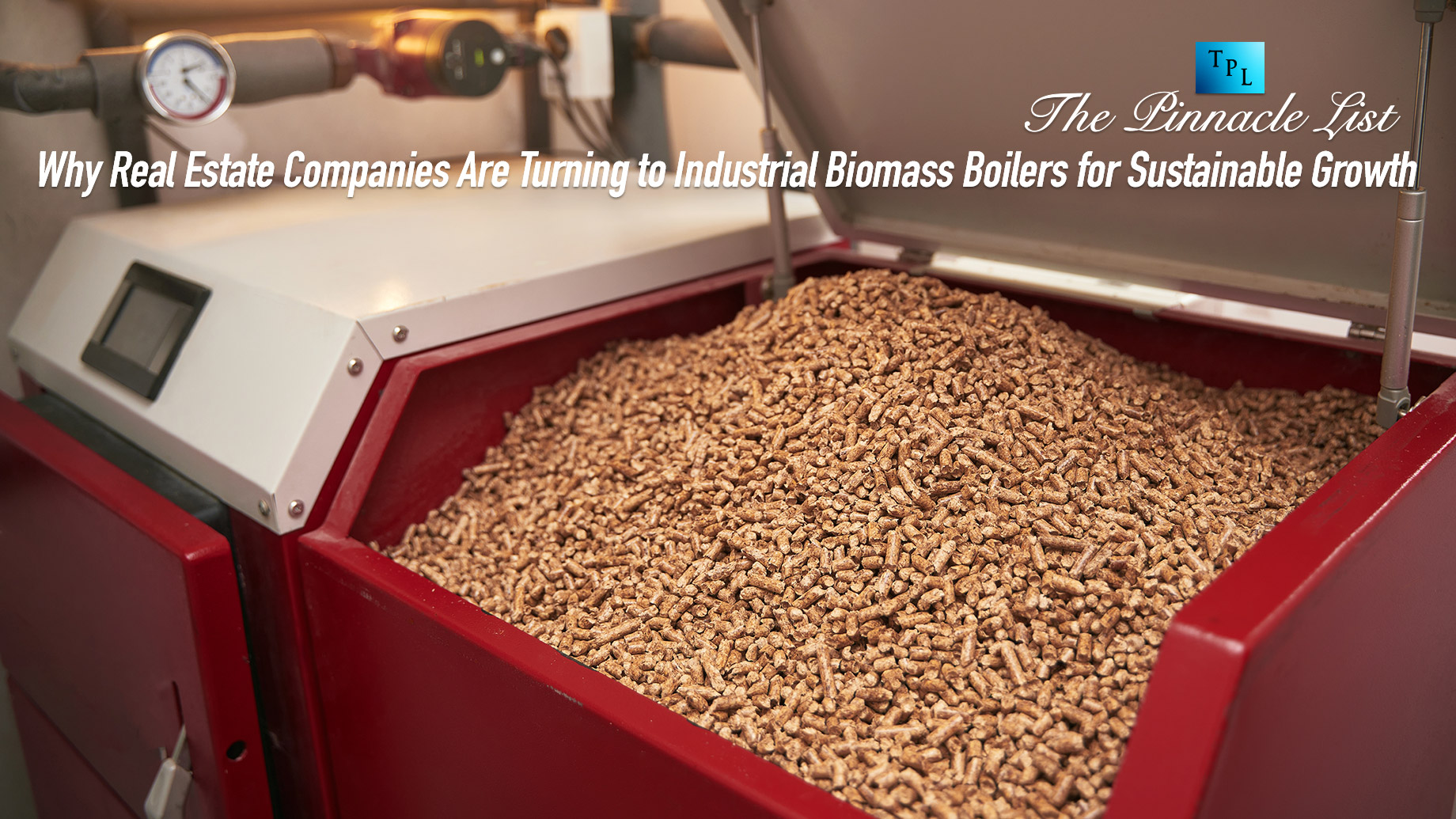
Sustainability is no longer a buzzword in real estate. It’s a necessity. More property developers are looking for energy-efficient heating solutions, and industrial biomass boilers are emerging as a top choice.
They reduce carbon emissions, offer cost savings, and help you get green building certifications. As energy costs rise and regulations become stricter, now is the perfect time to explore how biomass heating can benefit your real estate investments. Here are some Ranheat.com insights where you will learn the financial, operational, and environmental advantages of switching to industrial biomass boilers.
1. Understanding Industrial Biomass Boilers
Industrial biomass boilers are large-scale heating systems that generate heat using organic materials like wood or agricultural waste. Unlike traditional gas or electric systems, they burn renewable biomass fuel.
These boilers operate by burning biomass fuel in a combustion chamber. The fuel heats water or air, which is then circulated throughout a building. Biomass boilers also use Combined Heat and Power (CHP) systems to create heat and electricity.
Types of Biomass Fuel Sources
Wood pellets are a popular choice. They’re made from compressed sawdust, burn efficiently, and are easy to find. If you’re looking for something more budget-friendly, wood chips may be the way to go. They’re less processed and cheaper, but they take up more space. Then there’s agricultural waste, like corn husks and straw. Instead of going to waste, these materials can be repurposed as fuel, making them a great eco-friendly option.
2. Why Real Estate Companies Are Adopting Industrial Biomass Boilers
Biomass boilers help meet your sustainability goals by:
- Reducing dependence on fossil fuels.
- Lowering carbon emissions compared to gas or oil heating.
- Meeting green building certifications like LEED and Passive House.
- Taking advantage of state and federal tax incentives for renewable energy.
Cost Savings and Long-Term ROI
You may hesitate to invest in biomass boilers because of the high upfront costs. However, when you look at the long-term savings, it starts to make a lot of sense. Since biomass boilers are more efficient and recover heat better, they help cut down energy bills over time. You can also see a return on investment (ROI) within 5 to 10 years.
Energy Independence and Reliability
Instead of relying on expensive fossil fuels, you can use on-site waste, like wood scraps, to power your system. Since biomass fuel prices are stable, you won’t have to worry about sudden spikes in energy costs. And the best part? These boilers provide consistent heating, even in off-grid locations. They are reliable no matter where your property is located.
3. Key Considerations for Real Estate Investors
Initial Costs vs. Long-Term Benefits
You’ll need to factor in the boiler unit itself, fuel storage, and any retrofitting needed to fit your existing setup. Here’s the good news. Fuel costs are often lower than what you’d pay for gas or electric heating, which means long-term savings. Plus, government rebates and financing options can help take the sting out of those initial expenses.
Choosing the Right Biomass Boiler System
When choosing a biomass boiler, size really matters. You’ll want to think about how much heat your property needs to find the right system. Too small, and it won’t keep up; too big, and you’re wasting fuel. Don’t cut corners on installation. Work with certified manufacturers to see if everything runs smoothly and efficiently from day one.
Legal and Environmental Compliance
It’s essential to check local zoning laws, especially if you’re in an urban area. Some places have restrictions on where these systems can go. You’ll also need to meet EPA emission standards and follow local building codes to stay compliant. If you’re hoping to take advantage of rebates or tax incentives, your biomass fuel has to be sustainably sourced.
4. Addressing Common Challenges
High Initial Investment Costs
While biomass boilers require a significant initial investment, incentives, and long-term savings help balance the costs.
Fuel Supply Chain Challenges
You need a steady biomass fuel supply to maintain efficiency. Partnering with reliable suppliers can also mitigate your fuel shortages.
Space Requirements and Installation Constraints
Biomass boilers need their own space for storing fuel, so you’ll want to plan for that when considering installation. If you’re working with a high-density property, you may need to look into off-site fuel storage solutions.
Operational and Maintenance Complexity
Biomass boilers need regular cleaning and maintenance. That’s why it’s important to get the right training for the upkeep, troubleshooting minor issues, and keeping everything running smoothly. A little maintenance goes a long way in making sure your system stays efficient and cost-effective.
Compliance with Regulations and Emission Standards
Strict environmental laws require low-emission technology and sustainable fuel sourcing. You’ll also need to work with certified boiler manufacturers.
Long Payback Periods
Biomass boilers take several years to break even. However, if you’re focused on long-term value, you’ll find the investment worthwhile.
Efficiency and Performance Issues
Efficiency depends on biomass fuel quality and proper maintenance. Newer systems have automated controls to improve performance.
Public Perception and Market Readiness
Some people are still on the fence about biomass boilers, mostly because of misconceptions about cost, efficiency, or emissions. The truth is, they’re a smart, sustainable choice. A little education can also go a long way.
Conclusion
Switching to industrial biomass boilers is a smart, long-term strategy if you aim to reduce costs and lower carbon emissions. While there are upfront costs and logistical challenges, the financial and environmental benefits far outweigh the risks.
If you’re considering biomass boilers for your real estate properties, now is the time to explore your options. Reach out to learn about customized biomass heating solutions, cost estimates, and installation guidance. Take the next step toward sustainable real estate development today!